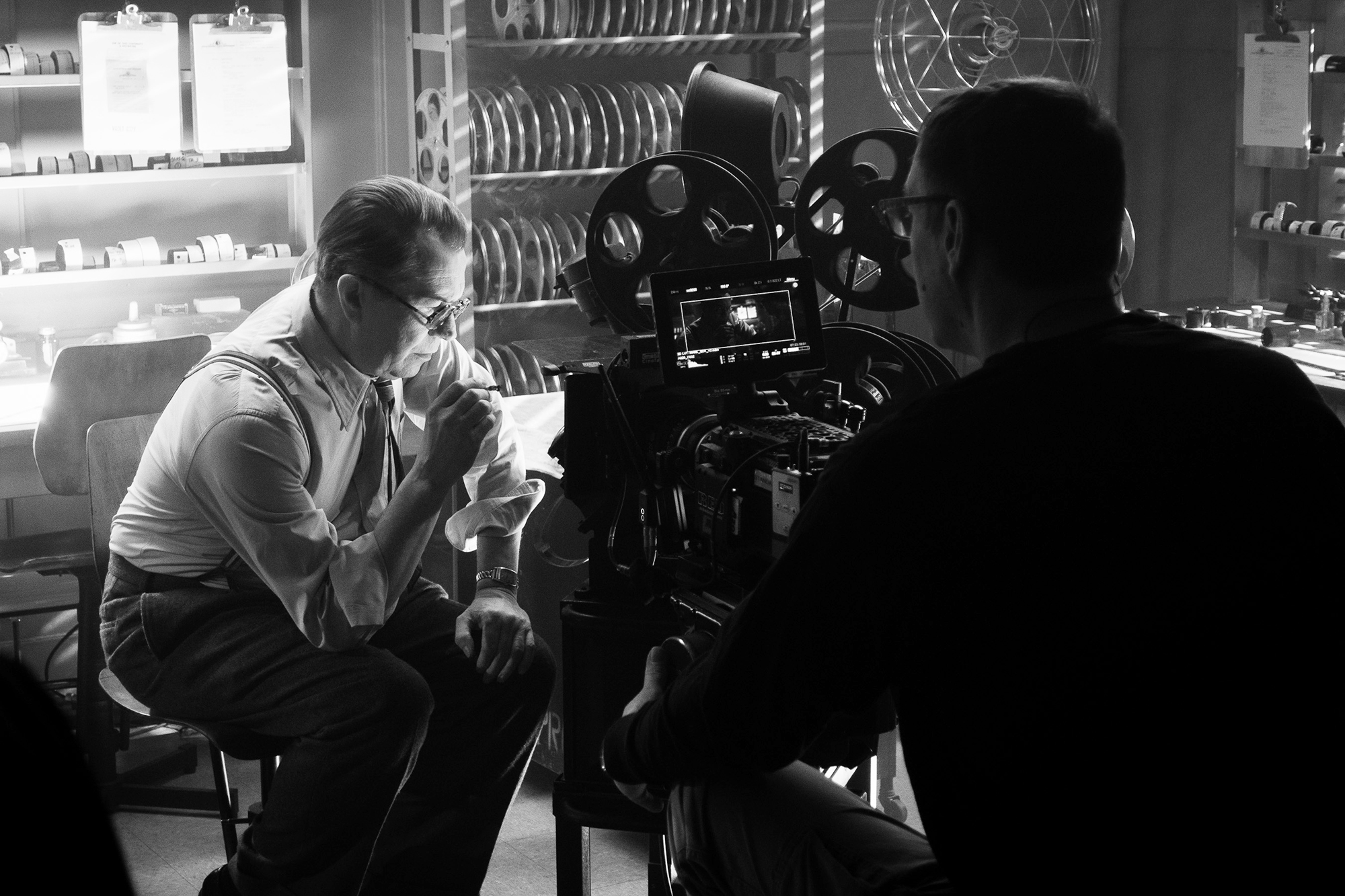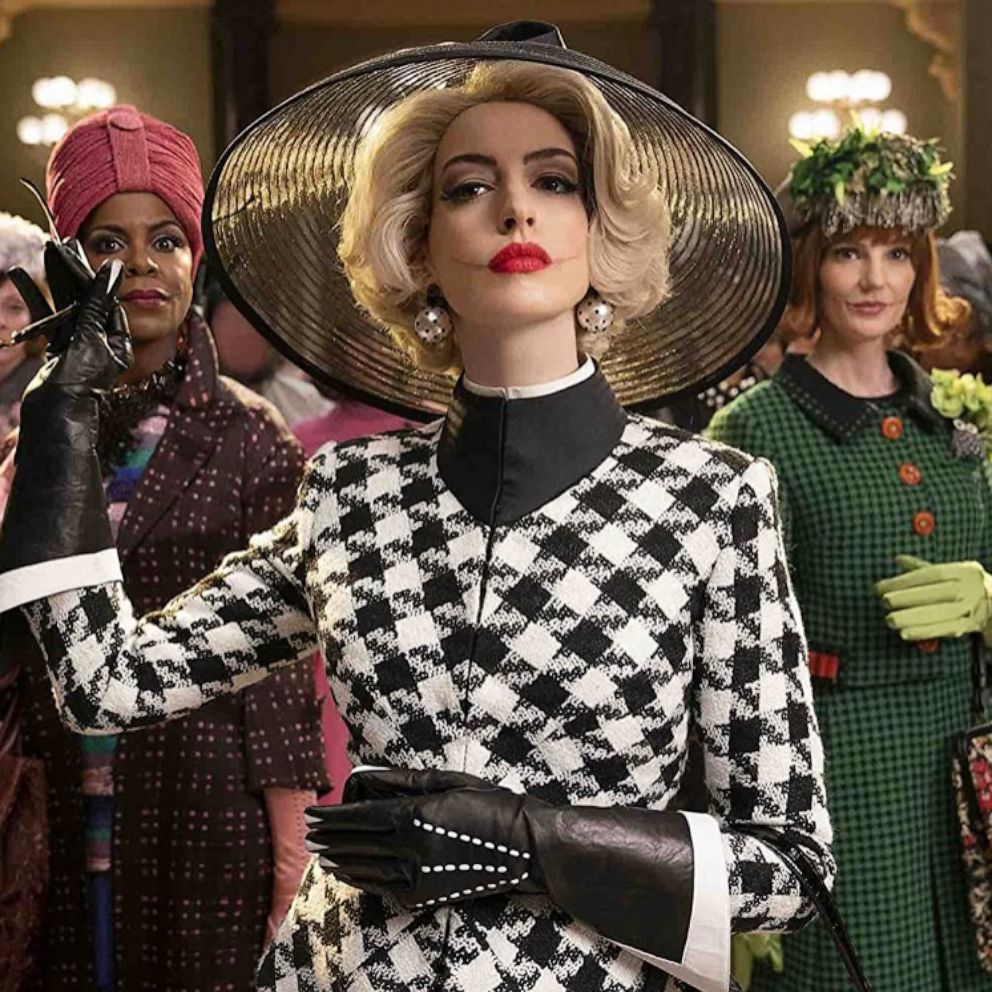'Mank' review: Gary Oldman's film is one of the year's 'very best'
"Mank" is a "most gorgeous piece of cinema" in addition to being terrific.
Already buzzed as the movie to beat at the Oscars, "Mank" arrives this month in theaters and on Netflix. Prepare to be wowed.
If you're not familiar with Herman J. Mankiewicz, "Mank" to friend and foe, just watch Gary Oldman deliver a virtuoso performance as this hard-drinking screenwriter whose celebrated wit made him the life of every wild party. Though the wicked wordplay of Mank’s scripts often went uncredited on such classics as “The Wizard of Oz,” he felt stung at having to share a screenwriting credit with Orson Welles on 1941’s “Citizen Kane.”
"Mank" makes up for past sins by giving the crazy, reckless, loser, genius Mank his due by putting his talent, charm and self-loathing in context. The movie delivers big time on its promise of sex, money, laughs, glamour, brilliance and betrayal. And then cuts deeper.

For director David Fincher ("The Social Network," "Gone Girl"), "Mank" is a passion project that allows him to thrillingly recreate Hollywood's Golden Age and resurrect a long-dormant script written by his journalist father, Jack Fincher, who died in 2003. The elder Fincher saw Mank, a fellow newsman, as a New York City drama critic and playwright who traded in his potential for the quick-buck allure of Hollywood. Mank is drinking himself to death but won't stop because he thinks sobriety will dam up his creativity. Moralists will rage over Mank's deal with the devil. Fincher only wants to understand.
"Mank" is the most gorgeous piece of cinema you'll see anywhere. Brilliantly shot in black-and-white by Erik Messerschmidt, with costumes to die for by Trish Summerville and a period-authentic score by Trent Reznor and Atticus Ross that somehow isn't defeated by the retro mono sound, "Mank" is meant to match the look and feel of its era, as if it's eight decades ago and you just bought a ticket.

Luckily, "Mank" doesn't even try to get by on looks alone. Mank's life is artfully sketched in as older brother to "All About Eve" writer-director Joseph L. Mankiewicz (an outstanding Tom Pelphrey) and the father of three with "poor Sara" (Tuppence Middleton), the wife who must put up with his "suicidal drinking, compulsive gambling and silly, platonic affairs." Mank is also a handful for his secretary Rita Alexander (Lily Collins) and producer John Houseman (Sam Troughton) who finds his "Kane" script "a collection of fragments that leap about in time." Snorts Mank, "welcome to my mind."
How to get Mank to focus? A driving accident and a broken leg force him to lay up at a California retreat, but he has his ways. In discussion with Welles, played with full-tilt ego and uncanny vocal resemblance by Tom Burke, Mank turned the story of press lord William Randolph Heart (a magisterial Charles Dance) and his Brooklyn dolly mistress Marion Davies (a sublime Amanda Seyfried), both of whom he initially liked and partied with, into a script that would take them both down under the guise of fiction.
What made Mank turn Judas? The film toys with the politically topical idea that Mank grew disillusioned with Hearst and Hollywood studio chiefs Louis B. Mayer (a terrific Arliss Howard), and Irving Thalberg (Ferdinand Kingsley) for destroying the California gubernatorial campaign of socialist novelist Upton Sinclair through a pioneering use of "fake news." Mank felt similarly abused by Hearst, claiming the tycoon manipulated him like "an organ grinder's monkey."
Because this is a film about a Mankiewicz, no argument is worth having unless the combatants can talk it out. And so Mank and Marion meet in person (it's a sensational scene) to discuss his breach of trust. This oddly delicate declaration of war between true friends, acted to perfection by Oldman and Seyfried, surpasses any threats from Hearst to ruin Mank's career.
Fincher thought his father's original screenplay unfairly torpedoed Welles as a credit hog, so the final script acknowledges film as an exhilarating form of collaborative chaos. But "Mank" refuses to devolve into an academic thesis about who wrote what. Mank knew you had to laugh at the kings or they'd make you cry. So it's fitting that a film about him should focus on what personal sacrifices are necessary to throw off the shackles of compromise and tell the truth. The Finchers, father and son, know you don't have to be a filmmaker to face that universal challenge. And so "Mank" emerges as a timely and touching tribute to both their talents and, not coincidentally, one of the very best movies of the year.
Download the all new "Popcorn With Peter Travers" podcasts on Apple Podcasts, Spotify, Tunein, Google Play Music and Stitcher.







